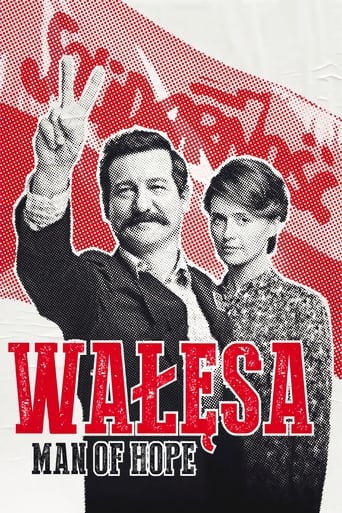El hombre que marcó la historia en Polonia
"Wałęsa. Człowiek z nadziei" (2013), a compelling biographical drama produced by Akson Studio and TVP in Poland, delves into the life of Lech Wałęsa, the iconic leader of the Solidarity movement and a pivotal figure in Poland's struggle for freedom from communist rule. Directed by the acclaimed Andrzej Wajda, the film captures the essence of Wałęsa's journey from an electrician at the Gdańsk Shipyard to a Nobel Peace Prize laureate and Poland's first post-communist president. The narrative weaves through the turbulent years of the 1970s and 1980s, showcasing Wałęsa's relentless fight against oppression and his role in sparking a wave of change that would eventually lead to the fall of the Iron Curtain. The film's strength lies in its nuanced portrayal of Wałęsa, brought to life by Robert Więckiewicz's powerful performance. Więckiewicz captures the charisma, determination, and human vulnerabilities of Wałęsa, making the character relatable and inspiring. The film does not shy away from depicting the personal sacrifices and the toll that political activism took on Wałęsa's family life, adding depth to the narrative. The interactions between Wałęsa and his wife, Danuta, portrayed by Agnieszka Grochowska, provide a poignant look at the personal cost of his public battles. Visually, "Wałęsa. Człowiek z nadziei" is a testament to Wajda's mastery of cinematic storytelling. The film employs a mix of archival footage and dramatized scenes to create a vivid tapestry of the era. The cinematography by Paweł Edelman effectively captures the gritty atmosphere of the shipyard strikes and the clandestine meetings that defined the Solidarity movement. The use of black and white sequences interspersed with color adds a layer of historical authenticity and emotional resonance, drawing viewers into the heart of the struggle. "Wałęsa. Człowiek z nadziei" is more than just a biopic; it is a tribute to the spirit of resistance and the power of collective action. It serves as a reminder of the impact one individual can have on the course of history, inspiring audiences to reflect on the values of freedom, solidarity, and hope. The film's release in 2013, coinciding with significant anniversaries of Poland's democratic milestones, underscores its relevance and enduring message, making it a vital piece of cinematic history.
Año2013
Página principal
Duración127 minuto
Ingresos5250588$
GénerosDramaHistoria
Países de producciónPoland


